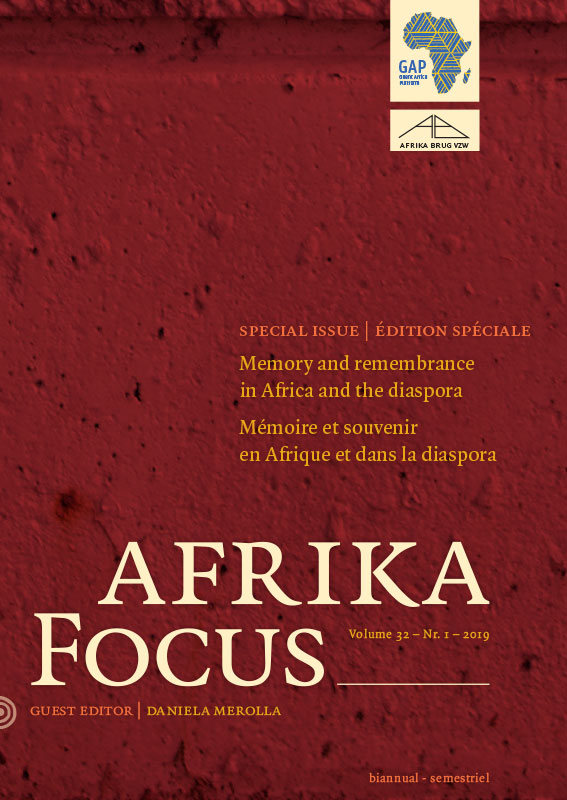Archiving Collective Memories and (Dis)owning
DOI:
https://doi.org/10.21825/af.v32i1.11792Abstract
This paper investigates the question of ownership of collective memories in the age of digitized archiving. The United Nations Educational, Scientific and Cultural Organization’s (henceforth Unesco) philosophy of preserving the world cultural heritage has boosted research on African oral literatures. The emphasis on the documentation of endangered cultures of Africa is salutary but also raises some critical questions. The central question this contribution addresses is that of the authorship-ownership of cultural heritage that is being archived in the framework of digital humanities. In essence, the notion of “collective memories” entails that of collective authorship and collective belonging as these memories are passed on from one generation to the other without the claim of singular ownership. A significant example in this line of thought has been the observation by the cultural giant Amadou Hampâté Bâ who ironically pointed out that the real author of The Fortunes of Wangrin (1973), which is attributed to him, is actually the storyteller Wangrin – the cunning interpreter – and members of the whole literary tradition that Wangrin embodied. In the preface of a recently published volume on La question de l’auteur en littératures africaines (Jérôme Roger 2015: 16) the author asks the following pertinent question: how can African literature, both oral and others, invite scholars to rethink the relationship between the anonymity of sources, versions and variants of stories and the constraint for an author’s name imposed by editors? The question has more weight in view of the massive digitization of African oral literatures that mostly takes place in institutions with more economic prestige and which are located outside the African continent. Therefore, the interrogation centres on the role of power with regard to the form in which these (hi)stories are published, where, how and to whom they are accessible, and to the habit of researchers to name people from whom they receive the bulk of knowledge which they transcribe and translate into the academic jargon “informants” instead of giving them more credit by referring to them as research partners or even by recognising them as co-authors. In this vein, the paper rounds up by exploring the possibility of reversing the customary auctorial perspective by bringing into the discussion the idea of “researchers as griots” suggested by (Merolla, Ameka & Dorvlo 2013). KEYWORDS: ARCHIVING AND SILENCING, MEMORICIDE, TEACHERS ON THE FIELD, SELFISH ALTRUISM, RESEARCHERS AS GRIOTSDownloads
Published
How to Cite
Issue
Section
License
Authors who publish with this journal agree to the following terms
Authors retain copyright and grant the journal right of first publication with the work simultaneously licensed under a Creative Commons Attribution License that allows others to share the work with an acknowledgement of the work's authorship and initial publication in this journal.
Authors are able to enter into separate, additional contractual arrangements for the non-exclusive distribution of the journal's published version of the work (e.g., post it to an institutional repository or publish it in a book), with an acknowledgement of its initial publication in this journal.
Authors are permitted and encouraged to post their work online (e.g., in institutional repositories or on their website) prior to and during the submission process, as it can lead to productive exchanges, as well as earlier and greater citation of published work (See The Effect of Open Access).


